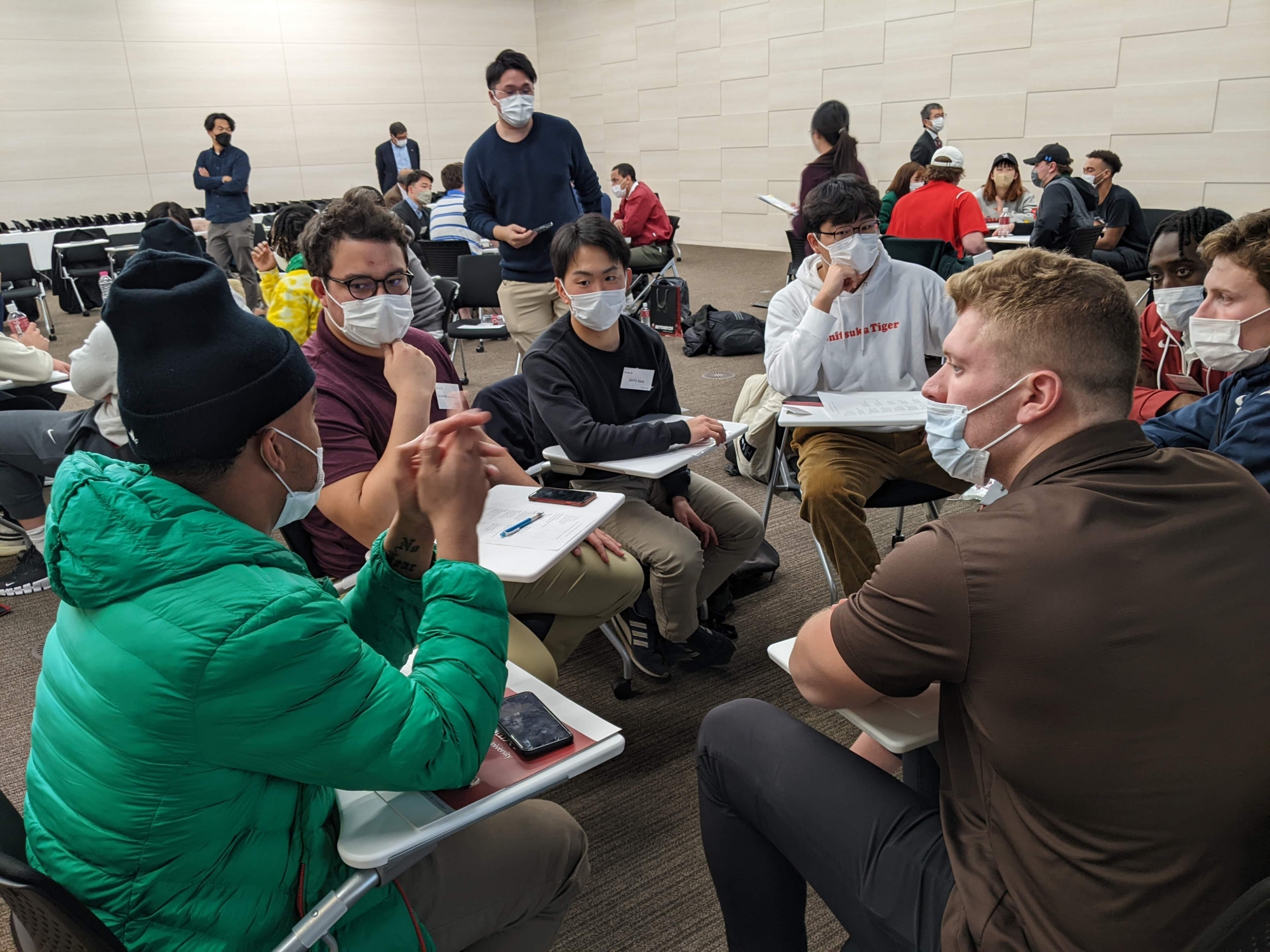Ivy League University football players discuss politics with students at Waseda
Mon, Feb 20, 2023-
Tags
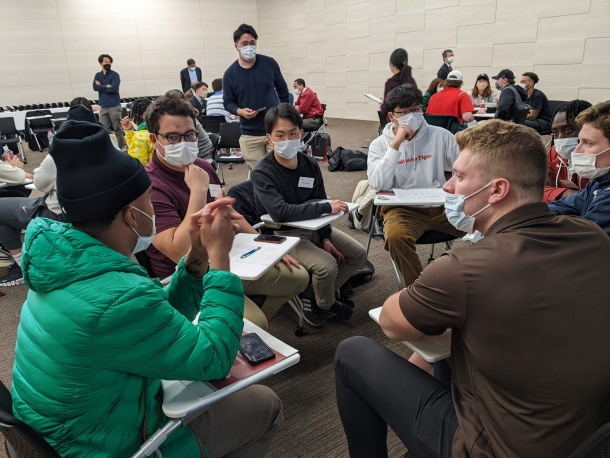
On January 20th, 2023, a group of university football players from the Ivy League Schools in the U.S. visited Waseda University. During their visit, they had a chance to engage in academic exchange with about 15 Waseda students, from various undergraduate and graduate schools, to discuss politics and international relations.
The American football players came to Japan for a friendly match with Japan’s X League. Since it was the first time for most of them to visit Japan, they had several international exchange events at different universities in Japan to gain a deeper understanding of the country and its culture. Waseda University has had a long-standing relationship with some of the Ivy League schools and thus the exchange event at Waseda was planned as part of their visit.
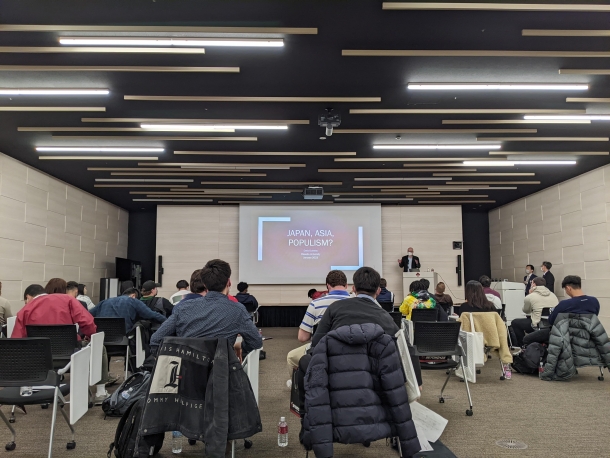
According to Dr. Edward Kamens, Sumitomo Professor Emeritus of East Asian Languages & Literatures at Yale University and the faculty advisor of this exchange program, one of the highlights of their visit was going to Kamakura to see the Great Buddha. Everything in Japan was a wonderful experience so far and they have been looking forward to the discussion with Waseda students.
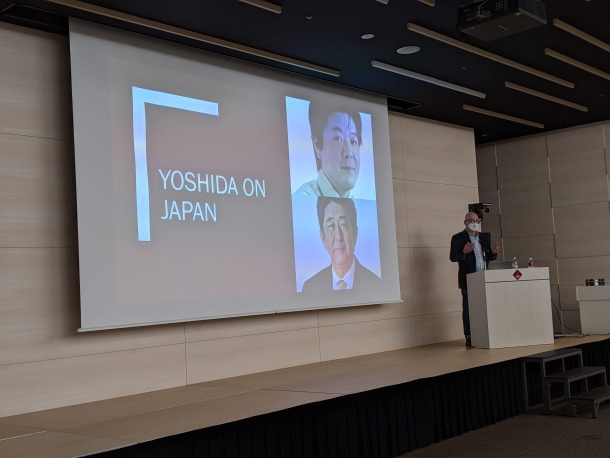
The event started with a lecture from Professor David Leheny of Waseda’s Graduate School of Asia-Pacific Studies. He gave a lecture about populism and the potential problems of democracy in the Asia-Pacific. Prof. Leheny first introduced the global trend of anti-pluralism politics and populism’s threat to democracy. “We have found that politicians in many countries these days state that they are not elite and are the ones who truly represent the general public.”
Professor Leheny then shared the ongoing debates on the definition of populism and gave potential explanations from the perspective of western politics. Finally, he introduced the implications of the rising of global populism in countries in the Asian-Pacific, especially the Abe administration in Japan.
After the lecture, students had a group discussion about their understanding of populism based on their cultural backgrounds and why it is a term that seems to be so prevalent and widely used.
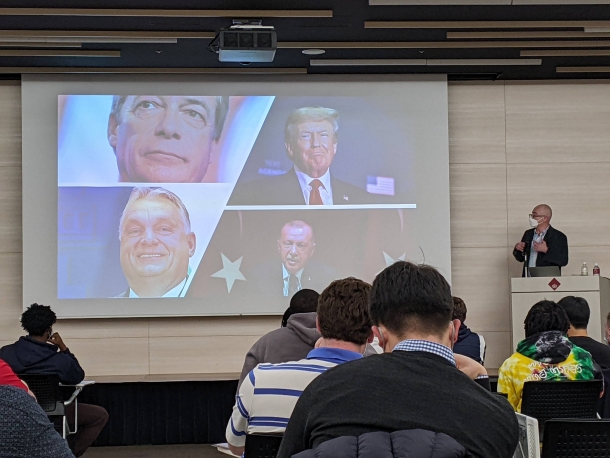
Some students talked about the different election systems between Japan and the US, which led to the divergence of political culture in these two countries. One group discussed how in the US, since the leader is directly elected by the voters, presidents usually have a strong character, while in Japan, voters vote for the party in most cases, so it is less necessary for politicians in Japan to form a personal character. There was also dialogue on how there is much less political debate in Japan compared with the US. For example, abortion in the US is a very controversial issue and causes huge debates on the topics of women’s rights and religious beliefs, while in Japan, it is not as much of a highly debated issue.
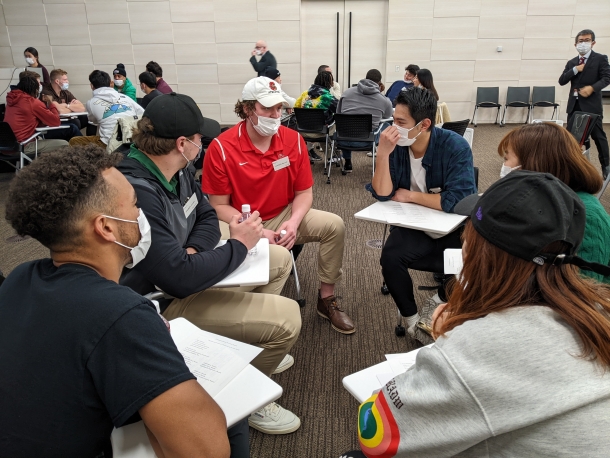
Others students discussed the dichotomy between collectivism and individualism in US and Japan, as well as how they affect each other’s personalities. While Americans cherish individual values and personal choices, Japanese people seem to have more of a collective care for each other.
After the event, a student from Brown University commented that the lecture from the professor was very informative and well-organized and students in his group were eager to share their thoughts and ideas. “I have loved to watch anime since I was a little child and it’s been amazing to visit Japan. Everything here is so different and I hope to visit again.”
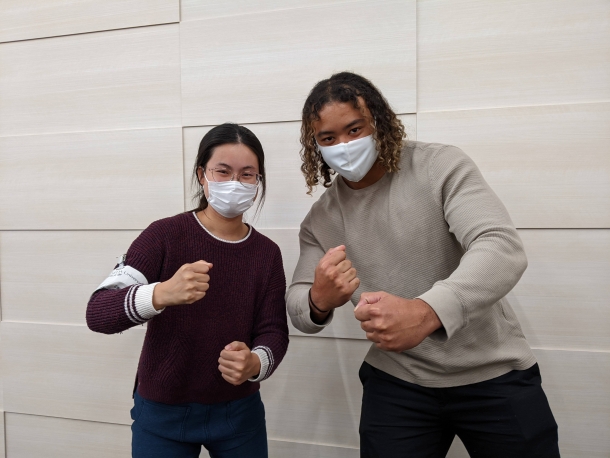
(Student contributor Yijing strikes a pose with an Ivy League participant post interview)
Another student at Waseda’s School of International Liberal Studies majoring in economics, said, “There are so many opportunities to talk with people from different backgrounds at Waseda University. Through today’s discussion, I learned about politics from an American perspective, and that gave me a better understanding of not just the political situation in America, but also how others view politics in Japan. It was also a great opportunity for me to explain about politics in Japan to foreign students and discuss Japan from a global perspective.”
The event was a valuable opportunity for Waseda students to talk with students from the Ivy League schools. The students were very open, friendly, and enthusiastic about learning about the politics of a foreign culture that had been unfamiliar to most of them. Students at Waseda University have many opportunities for cultural exchanges like this, and the environment is perfect to learn and make new discoveries through interactions with others from different backgrounds.
*This article was written and contributed by the following student.
Student Contributor
Shen Yijing
School of Political Science and Economics


